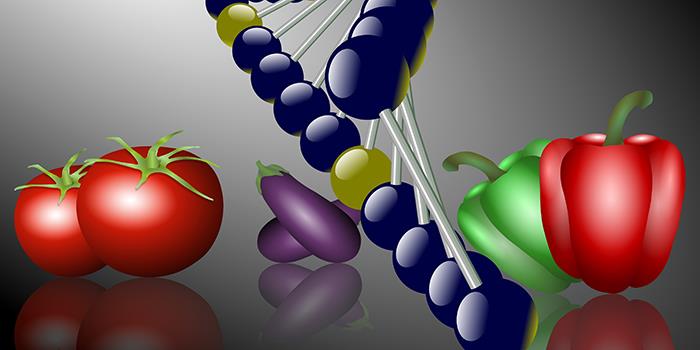International experts in the field of nutrition came together on November 24, 2014 to participate in the Sidra Medicine Symposia Series event on nutrigenetics and the future of nutrition hosted by Sidra Medicine’s Research Department. The event addressed the strong ties between food and common non-communicable diseases, helping build awareness about the role nutrigenetics and nutritional sciences play in understanding everyday health concerns.
Health conditions such as diabetes, hypertension, obesity, cardiovascular disease, metabolic syndrome and some cancers can be better understood, and therefore more easily prevented, with the help of nutritional science. These conditions, collectively referred to as Nutrition-Related Non-Communicable Diseases (NR‑NCDs), are triggered by the complex interaction of genetics, epigenetics, metabolomics, proteomics, micobiota and environmental factors and an individual’s diet.
Nutrigenetics, the science of how genes affect the response to dietary intake, and epigenetics, the study of inherited traits not caused by DNA alterations, are now being used to understand how diet and nutrition relate to the development of NR‑NCDs. In the last few decades, populations in the Middle East have witnessed significant changes, with traditional diets being supplanted by preprocessed foods, sugars, fats, animal products, and saturated- and trans-fatty acids1 (Fahed AC). This, combined with the genetic background of the Qatari population and epigenetic adaptation, has led to an exponential increase in NR-NCDs2-5 (Bener A; Ng SW; Rodriguez-Flores JL; Hunter-Zinck H). The World Health Organization estimates that NR-NCDs are presently responsible for 69% of the total number of deaths in Qatar6.
“The Qatari population has a unique genetic background, which, combined with recent changes in eating habits, has resulted in a high prevalence of NR-NCDs,” said Dr. Lars Hedin, Principal Investigator in Sidra Medicine’s Clinical Epidemiology Department. “By organizing high-quality educational programs, such as the ‘State‑of‑the‑art Nutrition in Qatar: Science Advances and Future Perspectives’ event, we seek to make positive contributions to how the local medical community addresses these issues through knowledge sharing and joint conversations with peers from all over the world. For example, the focus of our current research is instances where gestational diabetes mellitus and obesity have implications not only for the pregnant woman, but for the offspring as well.”
During the event, Dr. Annalisa Terranegra, Nutrigenetics Investigator in Sidra Medicine’s Department of Translational Medicine, highlighted research programs initiated at the Sidra Medicine Nutrigenetics Unit to address some of these conditions. The Unit will work to identify genetic and environmental determinants of nutrition-related diseases, such as obesity, diabetes, cardiovascular diseases and cancer among others. It is involved in national and international collaborations, including the development of new tools to investigate nutritional habits in Qataris in collaboration with Qatar University (QU), University of Milan and Kos Genetics, as well as microbiome analysis as a marker for cardiovascular risk in obese people in collaboration with QU and the Primary Healthcare Corporation, among others.
“The rising rate of NR-NCDs can only be curbed by understanding how genes and individual lifestyles impact the resolution and frequency of these conditions. The growing field of genetics is helping provide a more nuanced view of lifestyle diseases and the complex interaction between genes and behavior that is the root cause of many conditions but is also the key to treating them,” said Dr. Terranegra
Sidra Medicine will combine its world-class research expertise and patient-centric approach to care to deliver the right treatment at the right time to future patients. The unique expertise and programs underway at Sidra Medicine, such as the work being done by the research team, are supporting the growth and diversification of Qatar’s healthcare system for future generations.


